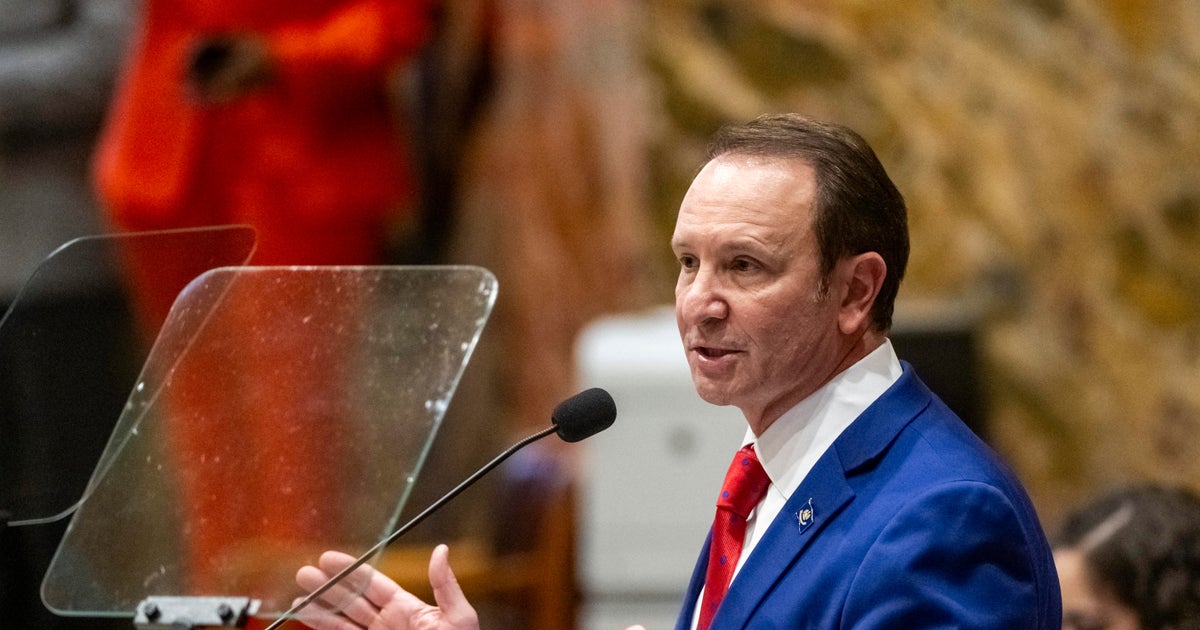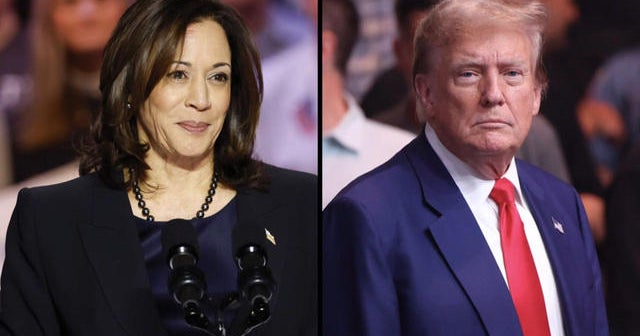CBS News
Supreme Court to hear dispute involving Louisiana congressional map that includes two majority-Black districts

Washington — The Supreme Court on Monday agreed to take up a long-running redistricting dispute in Louisiana that could determine whether the state maintains a congressional map that includes two majority-Black districts after the 2024 election.
The court’s decision to hear the appeal from a group of Black voters and the state marks at least the third time it will step into the legal battle over voting lines for Louisiana’s U.S. House districts that were drawn after the 2020 Census. The justices will hear arguments next year, with a decision expected by summer 2025.
The most recent congressional map, enacted in January after federal courts rejected earlier voting bounds, remains in place for the upcoming election, as the Supreme Court in May gave the green light for it to be used this cycle.
A three-judge district court panel had blocked the state from using the newly drawn map in any upcoming election after finding it to be an unconstitutional racial gerrymander. But the high court put that decision on hold.
The winding fight over Louisiana’s congressional redistricting plan began in 2022, when Republican state lawmakers adopted a map consisting of five majority-White House districts and one majority-Black district even though roughly one-third of the state’s population is Black.
Black voters and civil rights groups successfully challenged the plan’s legality, arguing it diluted the voting strength of minority residents in violation of Section 2 of the Voting Rights Act.
Agreeing with the challengers, U.S. District Judge Shelly Dick blocked Louisiana from using the lines drawn in 2022 in any elections and gave state lawmakers the opportunity to draw a new map that included an additional majority-Black congressional district.
While the litigation was underway, the Supreme Court cleared the way for Louisiana to proceed with redrawing its congressional district lines, as Dick had ordered. A federal appeals court then set a Jan. 15 deadline for state lawmakers to craft a new redistricting plan with a second-majority Black district.
Shortly after the state legislature convened for a special session to draw new lines, it adopted a map that lawmakers said satisfied the district court’s ruling and also achieved certain political objectives. The plan protects certain “pivotal” Republican incumbents, according to GOP state senators, including House Speaker Mike Johnson, Majority Leader Steve Scalise and Rep. Julia Letlow, the only woman in Louisiana’s congressional delegation.
But the new map changed the district of GOP Rep. Garret Graves, who backed Gov. Jeff Landry’s Republican opponent in the 2023 gubernatorial race and didn’t publicly support Scalise in his unsuccessful bid for House speaker.
Graves’ District 6 was reconfigured to create the second majority-minority district. It now stretches from Shreveport, in Louisiana’s northwest corner, to Baton Rouge, in the southeast, and connects predominantly Black populations from Shreveport, Alexandria, Lafayette and Baton Rouge.
The new plan kicked off the challenge that is now before the Supreme Court, as a group of 12 “non-African-American” voters argued it is a racial gerrymander that violates the 14th Amendment. They claimed that the legislature engaged in “explicit, racial segregation of voters and intentional discrimination” based on race and created two majority-Black districts without considering traditional redistricting criteria.
A divided three-judge district court panel sided with the voters and concluded that the map is an impermissible racial gerrymander. That decision, though, was halted by the Supreme Court after Louisiana Republicans and Black voters successfully sought to use the new map in the upcoming elections.
State GOP officials have lambasted the legal process that led them back to the high court again, lamenting in a filing to the justices that they are “stuck in an endless game of ping-pong — and the state is the ball, not a player.”
They told the justices the litigation over the redistricting plan forced them into a “lose-lose situation” — the legislature had to consider race to remedy the Section 2 violation the lower courts identified in the first map from 2022, but in doing so, considered race too much, as the three-judge district court panel found when it evaluated the new voting lines.
“Cases like this illustrate that there is seemingly no end to the torture-by-litigation that States endure after every redistricting cycle,” the state Republican officials wrote in their filing.
CBS News
Boeing machinists vote to accept labor contract, ending 7-week strike

Boeing’s 33,000 unionized machinists on Wednesday voted to approve the plane manufacturer’s latest contract offer, ending a seven-week strike that had halted production of most of the company’s passenger planes.
The union said 59% voted to accept the contract. Members have the option of returning to work as soon as Wednesday, but must be back at work by Tuesday, November 12, the union said in a statement.
Union leaders had strongly urged members to ratify the latest proposal, which would boost wages by 38% over the four-year life of the contract, up from a proposed increase of 35% that members of the International Association of Machinists and Aerospace Workers (IAM) had rejected last month.
The revised deal also provides a $12,000 cash bonus to hourly workers and increased contributions to retirement savings plans. The enhanced offer doesn’t address a key sticking point in the contentious talks — restoration of pensions — but Boeing would raise its contributions to employee 401K plans.
Average annual pay for machinists, now $75,608, would climb to $119,309 in four years under the current offer, Boeing said.
The vote came after IAM members in September and October rejected lesser offers by the Seattle-based aerospace giant.
“In every negotiation and strike, there is a point where we have extracted everything we can in bargaining and by withholding our labor,” the International Association of Machinists and Aerospace Workers stated last week in backing Boeing’s revised offer. “We are at that point now and risk a regressive or lesser offer in the future.”
Acting U.S. Labor Secretary Julie Su has played an active role in the negotiations, after recently helping to end a days-long walkout that briefly closed East and Gulf Coast ports.
The Boeing strike that began on Sept. 13 marked the latest setback for the manufacturing giant, which has been the focus of multiple federal probes after a door plug blew off a 737 Max plane during an Alaska Airlines flight in January. The incident revived concerns about the safety of the aircraft after two crashed within five months in 2018 and 2019, killing 346 people.
Boeing in July agreed to plead guilty to conspiracy to commit fraud for deceiving regulators who approved the 737 Max.
During the strike, Boeing was unable to produce any new 737 aircraft, which are made at the company’s assembly plants in the Seattle area. One major Boeing jet, the 787 Dreamliner, is manufactured at a nonunion factory in South Carolina.
The company last month reported a third-quarter loss of $6.1 billion.
contributed to this report.
CBS News
11/4: CBS Evening News – CBS News

Watch CBS News
Be the first to know
Get browser notifications for breaking news, live events, and exclusive reporting.
CBS News
11/4: The Daily Report – CBS News

Watch CBS News
Be the first to know
Get browser notifications for breaking news, live events, and exclusive reporting.






